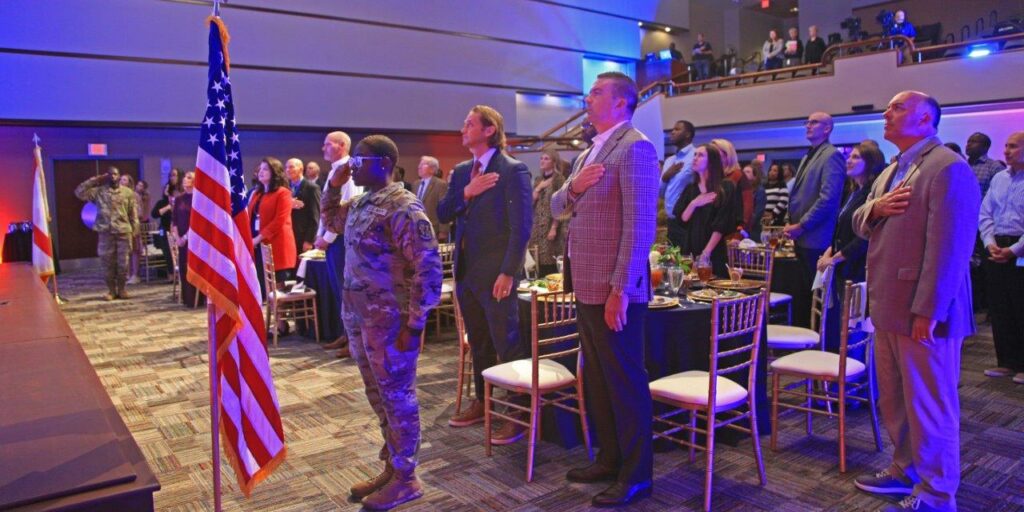Soon after establishing the Restaurant Employee Relief Fund, the National Restaurant Association (NRA) in Washington, D.C., stopped accepting applications. More than 60,000 people had applied for the one-time aid of $500.
The Alabama Restaurant & Hospitality Association (ARHA) offered a similar $300 grant to workers who have lost their jobs, but closed applications “due to overwhelming response.”
Likewise, the James Beard Foundation’s Food and Beverage Industry Relief Fund quickly handed out $15,000 grants in 12 national regions to 36 small, independent restaurants, before halting the application process intended to keep eateries from closing.
“We recognize the tremendous need from independent restaurants across the country and will continue to work to support you however we best can,” the Beard Foundation website announced.
The 101-year-old NRA, which represents half of the 1 million American restaurants, said prior to coronavirus epidemic quarantines that restaurants, bars and independent food and beverage operations were generating more than $1 trillion annually in the U.S., employing more than 15% of the national workforce. Those businesses pump as much as 60% of revenues back into their communities.
The U.S. Private Sector Job Quality Index estimates that as many as 9 million restaurant jobs are at risk of at least short-term loss. When bars are added, the industry could lose more than 1 million more jobs.
Some Alabama restaurants are already out of business. National chains have temporarily closed select restaurants, like Red Lobster in Vestavia Hills, rather than offer takeout or curb service.
“As the COVID-19 crisis continues, we made the incredibly difficult decision to temporarily close some of our restaurants,” said Kim Lopdrup, CEO of the 600 Red Lobster restaurants in the U.S. and Canada. “We understand the impact this situation has on our guests as well as our employees’ ability to work and our ability to be a great employer. These decisions have not been taken lightly and are extremely painful, but they are necessary to ensure we survive this crisis and are around to re-open our doors once it passes.”
Well-known Alabama chains, like Wintzell’s, with seven restaurants statewide, have shut down for the duration of the quarantine. Wintzell’s President Bob Omainsky of Mobile is chairman of the ARHA board, which includes many owners of facilities facing financial difficulties.
While sales are down substantially at almost every restaurant in Alabama, many small independent businesses are surviving. Smokin’ S BBQ in Wetumpka has seen average weekly sales drop by 20% but owner Tom Haynes said he’s not had to lay off any of his six employees.
“We have kept them all and, to be quite honest, we could use another person, as takeout and curbside service is more labor-intensive and, at times, we’re stretched thin,” he said.
Longtime customers are continuing to either pick up or order meals delivered from the tiny barbecue joint that has been open more than 30 years. One customer asked Haynes to deliver meals to first responders, setting a $1,000 limit before extending the donation amount so that Smokin’ S could feed local hospital employees.
“We are overwhelmed with the generosity of folks like this,” Haynes said. “In addition, we are getting orders from businesses who are feeding their employees, which we haven’t had before the crisis, and we think they are doing it just to help support local businesses.”
Roebuck Landing Grill & Grocery just outside Eutaw had a thriving business prior to closing its doors to the public four weeks ago. Owner Melanie Moss said she continues to keep similar hours while maintaining their full menu, and selling live bait, groceries and other goods.
“We are continuing to pay our staff at this time,” Moss said. “We are a small hole-in-the-wall with a big fan base. We are missing our regulars and they are missing us.”
Coaches Corner in Wetumpka had 38 employees prior to the COVID-19 pandemic. Owner Heather Norton said the staff is down to 29 because nine workers chose to stay home until the threat has passed. Business has decreased by two-thirds over the past month.
“Thankfully we have not had to lay off any of our staff,” she said. “We’ve just transitioned them into other roles for now.”
The “great group of regulars” at Coaches Corner took it hard at first when they were unable to keep meeting friends at the restaurant on the banks of the Coosa River, Norton said, but they are adapting to the current way of life. Longtime customers are buying meals through to-go orders. Others are supporting the restaurant on social media, commenting on Norton’s daily posts.
“We are blessed to be in such an amazing community,” Norton said. “With their help, we will make it through this and come out stronger on the other side.”
Southern Grounds Coffee Shoppe in Thomasville is not as busy as before and has laid off one worker while owners Bailey and Enrique Aguilar try keep their seven-year business stable. They said loyal customers tell them they miss eating inside the historic 104-year-old Champion House.
Jake’s on Broad in Alexander City is operating with a skeleton crew of two cooks and a couple of waitresses after owner Jake Mixon was forced to let several staff members go because of the coronavirus quarantine. The waitresses now box to-go orders, handle curbside deliveries and take customers’ orders and payments.
“Business is slower and I miss the personal interaction with the customers,” said Mixon, who opened his restaurant 10 years ago. “However, the community response has been phenomenal. The regulars, as well as others, are keeping the local restaurants afloat with their support.”
Mixon was forced to cancel the restaurant’s Thursday Night Charity Bingo, a tradition that raises money for many community needs. He said it will resume when health restrictions are lifted.
“I looked forward to the customers returning, the noise, the laughter, the hustle and bustle again,” Mixon said. “I think we will never again take simple things, like seeing one another, for granted.”
(Courtesy of Alabama NewsCenter)













